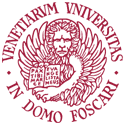Agnese De Rossi, Alajmo Group
Curated by VSM Alumni, March 2025

Turning a Management degree into a career in food marketing
Agnese De Rossi is a Marketing Manager with solid experience in the food sector. She has built her career by combining strategy, creativity, and deep market knowledge. From brand management to market research, from distribution to event planning, her attention to detail has led her to take on increasingly responsible roles in prestigious companies, including Cameo and the Alajmo Group, a benchmark in Italian fine dining.
In this interview, Agnese shares how her academic journey in Management at Ca’ Foscari influenced her professional choices, which skills proved most valuable in the workplace, and what advice she would give to those dreaming of a career in food marketing. A journey through innovation, sustainability, and branding strategies in a constantly evolving and opportunity-rich sector.
What led you to study management, and how did your university experience influence your professional choices?
I’ve always had a natural inclination for organizing and managing activities—from childhood games to study groups, to planning trips with friends. When it came time to choose a degree, I looked for a path that would turn this inclination into a real profession. Management offered exactly that: a mix of structure, strategy, and creativity.
During my university years, I refined my analytical skills, learned to work in teams, and developed a problem-solving mindset—all of which have been essential throughout my career.
You now work with the Alajmo Group, a recognized leader in high-end dining. What are your main responsibilities, and what are the challenges you face in your role?
The Alajmo Group is internationally recognized for its excellence in fine dining, and in recent years has expanded its business by developing the Food & Design division, focused on branded product sales. I joined the company specifically to help strengthen this business unit and increase brand awareness in Italy and abroad through new distribution channels.
The biggest challenge? The food sector is extremely competitive, and standing out requires strategic vision, innovation, and a strong connection with the audience.
Working for a brand with such a high reputation demands a balance between honoring tradition and driving innovation—a combination that makes my role incredibly stimulating.
Working in a top-level food company requires a blend of managerial and creative skills. Which of the competencies you gained during university have proven most useful in the workplace?
University gave me a strong theoretical foundation in business management, strategic marketing, and market dynamics. In particular, learning about business operations has been crucial for managing the daily challenges of my job.
Beyond technical skills, critical thinking has been key—the ability to analyze a problem from multiple angles and find effective solutions.
Group projects and practical assignments also taught me the value of teamwork and effective communication—core competencies for anyone working in marketing and branding.
The food industry is constantly evolving, with innovation, sustainability, and shifting trends at its core. How do you see the future of this sector, and what opportunities does it offer to recent graduates?
The food sector is dynamic and ever-changing. Innovation, sustainability, and digitalization are the main drivers of transformation and create huge opportunities for those with skills in marketing, branding, and commercial strategy.
Companies that can anticipate and interpret trends—such as the growing demand for organic products, sustainability concerns, and online food retail—will strengthen their market position.
For young graduates, this means entering a sector that will never truly be in crisis, but which will increasingly require specialization and adaptability.
What’s the most important lesson you’ve learned in your transition from university to the professional world, and what advice would you give to today’s students?
The transition from university to the workforce can be a moment of growth—but also of uncertainty. The most important lesson I’ve learned is that academic preparation is just the starting point, but attitude and adaptability are what really make the difference.
My advice is to take advantage of every opportunity university offers: from internships to hands-on projects, from networking to international exchange programmes.
Being proactive, curious, and willing to step outside your comfort zone will help you enter the professional world with greater self-awareness and a real competitive edge.
What advice would you give to students who want to build a career path similar to yours?
My advice is to have clear goals and stay true to your long-term vision. Don’t get sidetracked by short-term opportunities that may seem attractive but pull you away from your ideal path.
Be open to different experiences, but always with a strategic thread that allows you to build a solid professional profile. In food marketing especially, passion for the product, market knowledge, and staying on top of trends are essential.
Finally, never underestimate the value of networking—the right connections can open unexpected doors and accelerate your professional growth.

